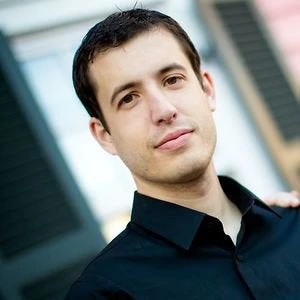
Try to search for stories that feature the growing pains and gains of growth-oriented technology startups – content that is not only entertaining, but of high quality and most important, educating. It is a surprisingly hard task in today's economy, where entrepreneurship is booming again.
It was thus an easy decision to suggest to Startupland – a documentary series that tells the stories of entrepreneurs – that we should organize a screening event together with infoDev's worldwide network of mHubs, mLabs and incubators. These tech hubs guide startups during their entrepreneurial journey, and they have become important informal meeting venues for local startup communities. They're perfect partners to share content locally. (Read more from the post ‘ Inside the tech hub movement: In-depth lessons from a global mobile entrepreneurship initiative.’)
The event, organized on June 10, 2014 – together with mLab East Africa, mLab ECA, mHub Vietnam, DTBi in Tanzania, StartLabs in Serbia, and co-creation Hub in Nigeria – formed a part of Startupland's global premier. In addition, Justin Gutwein, the director of Startupland, was invited to host a screening in Kingston, Jamaica, where infoDev launched our partnership with UWI Consortium as a part of our Caribbean Mobile Innovation Program.
I had a chance to sit down with Justin while in Jamaica, and I asked him to share his stories with us. Although Startupland is a documentary of five North American companies in a D.C.-based accelerator, it reflects stories that are relevant to any startup – told by entrepreneurs, for entrepreneurs.
View the trailer for 'Startupland'
Tell us a little about yourself. And: What made you interested in startups?
Justin: I remember my first job out of college. It was at a tech company based just outside Indianapolis that built flash-based video players and embedded them onto a company’s homepage. Seems quaint now, but keep in mind that this was late 2005. YouTube existed, but it was still low-quality, 4x3 cat videos. Now they deal in beautiful, high-definition cat videos – but I digress.
I was hired to film and edit the video content. Most of the content was interviews with the team, product demos and customer testimonials. It may not have been the most riveting content, but I was being paid to make videos . . . which, in Indianapolis in early 2006, was extremely rare. I loved my job. I came in late and stayed even later, became really close friends with my coworkers, and there was almost always beer in the fridge. I had joined a startup. The problem was, I had no idea what a startup was.
It sounds like a lot of fun. So what happened next?
Justin: As I mentioned, Indianapolis in 2006 wasn’t exactly a hotbed of film activity. When offered the job, all I heard was, “We will pay you (albeit not much) to do what you love.” I was in! Of course, I was. However, as the time passed, we needed upgraded equipment, I was still doing the jobs of 10 or more people, and I wasn’t making any more money. I became jaded, and I wasn’t the only one. I didn’t know what I was actually getting myself into. Tensions grew and relationships soured. This little voice in the back of my head started to remind me of how much I enjoyed the early days . . . when my opinions were more influential, and I could see my impact on the company.
In late 2010, my wife was offered a job on Capitol Hill in Washington, D.C. The move proved a perfect time to part ways with the old company and start my own. Being a part of a startup is hard. Starting one yourself is even harder. I moved to a new market, where I didn’t know anyone, and started ShineOn Storytelling. I produced short videos for company websites. While it was challenging, it was also very rewarding. My hard work directly affected my income, and that was pretty cool.
I found myself doing a lot of work for tech startups around the D.C. area. It wasn’t necessarily the most lucrative business, as startups aren’t known for having wads of cash, but it was really fun and exciting. I was working with extremely innovative, creative people. It was almost therapeutic to see others going through the same ups, downs and problems that I was.
During that time, I got to know Jonathon Perelli. Jonathon had a venture firm called Fortify Ventures and ran an accelerator called The Fort. A good number of the startups that I had been working with were actually in the Fortify portfolio, and I eventually did some work for Fortify, as well. One evening, I ran into Jonathon at a meetup. We were both enjoying a whisky when he looked at me and said, “Wouldn’t it be cool if there was a reality show inside of an accelerator?”
I thought about it for a moment, dramatically took a sip of my drink, and said,”No, because reality shows are terrible.” There was definitely a moment where he looked a little defeated, but I added, ”However, a documentary could be really interesting. Something that is authentic and true to the entrepreneurial experience.” So, like all of the “best” ideas, Startupland was born over drinks.
How long did it take for you to bring that idea to life?
Justin: From there, the idea became more formed over a series of texts and e-mails. We decided to co-create – or co-found, if you’d like to use startup terms – this documentary series and shoot the next accelerator class at The Fort. I moved into the accelerator with camera in tow – and 18 months, a successful Kickstarter campaign and countless hours of filming, editing, selling, marketing, negotiating, and some many other -ings later, Startupland is being shared with the world.
What’s the message embedded in Startupland?
Justin: There was something about the idea of this project that really interested me, and it took a little thinking to really identify what my internal motivation was. It can be boiled down to three things:
1) The general population doesn't understand the startup world. The version of startups that I saw and experienced first-hand, and the versions seen in the media, were greatly different. The perception that all startups are tech is wrong, and the perception that tech startups are a bunch of 22-year-olds throwing large parties fueled by endless amounts of venture funding is drastically flawed. I wanted the viewers to experience what an average startup is like.
2) Many people are too afraid and/or just don’t know how to take an idea and bring it to fruition. I wanted, with the help of Jonathon, to give people a compass. It’s not a map: There are plenty of other ways to start and build a company than what we show, but Startupland can certainly help get you going in the right direction.
3) Venture funding is not the only way to build a company. I’m not anti-venture by any means. However, I’ve seen many people believe that, without funding, they will never get off the ground. I was one, too, but I’ll save you the details on that brilliant idea.
The bottom line is that I believe in Sttartupland. Not the series I directed – although I believe in it, too – but the place that exists everywhere and nowhere . . . all around the globe. The place where dreams, ideas and passions of the human race continue to create, innovate, and yeah, make the world a better place. Or as Alexis Ohanian puts it, “make the world suck less."


Join the Conversation